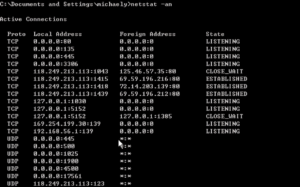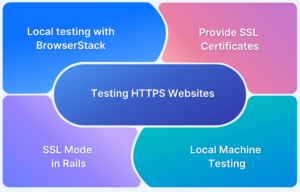The term “127.0.0.1:62893” might appear technical, but it’s crucial for understanding localhost testing and network configurations. The IP address 127.0.0.1 represents localhost, which is used to test software applications in a local environment. Combined with port number 62893, it enables communication within systems without external network involvement.
What Does 127.0.0.1 Represent?
127.0.0.1 is the loopback address, allowing a computer to refer to itself in networking. This address is foundational in local testing.
This specific IP address does not involve external networks, providing a secure and isolated testing environment for developers.
Understanding Port Numbers: What Does 62893 Indicate?
Port numbers identify specific processes or services within a network. The port number 62893 is dynamically assigned for internal communication.
Each port has its unique role, ensuring multiple services on the same machine can operate without interference.
Why Combine 127.0.0.1 with a Port Number?
When 127.0.0.1 pairs with a port, it specifies a service running locally. Port 62893 likely hosts temporary or dynamic services.
For example, a local server or debugging process might utilize this specific pairing during software development.

Applications of 127.0.0.1:62893 in Software Development
This IP-port combination is invaluable for testing environments, ensuring applications run correctly before public deployment. Developers often rely on it.
Common use cases include debugging web servers, testing APIs, or running local instances of applications without network interruptions.
How Does Localhost Improve Development Processes?
Localhost testing ensures security, speed, and independence from external networks. The IP address 127.0.0.1 guarantees controlled testing.
By isolating the application, developers can identify and fix errors efficiently without affecting live environments or real users.
The Role of Port Numbers in Localhost Testing
Port numbers like 62893 help in distinguishing between multiple services. For example, a web server might use port 80, while another service uses 62893.
These assignments prevent conflicts and streamline development processes for different applications running on the same machine.
Common Issues When Working with 127.0.0.1:62893
Using this IP-port combination might raise concerns like incorrect configurations, firewalls blocking access, or port conflicts.
To resolve these issues, developers often check network settings, ensure ports are available, and configure firewalls appropriately.
How to Access 127.0.0.1:62893?
Accessing 127.0.0.1:62893 requires a web browser or specialized client tools. Simply typing the address in the browser opens the service.
This accessibility ensures ease of use for developers, allowing quick interaction with the hosted application or service.
Security Implications of Using Localhost Ports
Though secure, localhost ports like 62893 might pose risks if improperly configured. Unauthorized access could expose local data.
Developers mitigate risks by enabling authentication, restricting access, and monitoring localhost traffic regularly.
Configuring Services on 127.0.0.1:62893
Setting up a service on 127.0.0.1:62893 involves choosing a compatible port, configuring the application, and ensuring no conflicts.
Efficient configuration ensures seamless communication between the local server and the application.
Benefits of Localhost Testing Over Remote Testing
Testing on localhost offers unmatched speed and reliability. Unlike remote servers, localhost eliminates latency and reduces dependency on networks.
This approach is cost-effective, particularly for small-scale applications or early development stages.

Troubleshooting Common Localhost Port Issues
When errors occur on 127.0.0.1:62893, steps include checking firewalls, restarting services, or ensuring the port is not occupied.
Proper troubleshooting ensures uninterrupted development and testing, improving the overall workflow.
Tools for Monitoring Localhost Ports
Tools like Netstat or Wireshark assist in monitoring localhost traffic and identifying any anomalies on ports like 62893.
These tools provide detailed insights into network activities, helping in diagnosing and fixing issues effectively.
The Evolution of Localhost in Networking
Localhost usage has evolved with technology, becoming a cornerstone for secure and efficient application development processes.
Its continued relevance highlights its significance in modern software engineering and network configuration.
127.0.0.1:62893 in Real-World Scenarios
From running local servers to testing APIs, this IP-port combination serves as a practical tool for developers worldwide.
Its simplicity and functionality make it indispensable in various programming and software testing environments.
Best Practices for Using 127.0.0.1:62893
Adhering to best practices, such as securing ports, monitoring activity, and isolating processes, ensures optimal use of 127.0.0.1:62893.
Following these practices minimizes risks while maximizing efficiency and reliability.
The Future of Localhost Testing
As technology advances, localhost testing will remain vital, adapting to new challenges and innovations in software development.
Its foundational role ensures its relevance across various fields of networking and programming.
Conclusion
127.0.0.1:62893 exemplifies the importance of localhost testing in modern development environments. This combination of IP and port empowers developers to test, troubleshoot, and deploy applications efficiently. By understanding its intricacies, developers can leverage its capabilities for seamless and secure application development.
The Magic of california: A 2000-Word Journey Across the Golden State
FAQs
What does 127.0.0.1:62893 mean?
127.0.0.1 refers to localhost, and 62893 is a port number for local communication between services.
Why is localhost testing essential?
Localhost testing ensures secure, fast, and isolated application testing without external network dependencies.
How can I resolve issues with 127.0.0.1:62893?
Check for port conflicts, firewall restrictions, or improper configurations to resolve issues effectively.
Is 127.0.0.1 secure for testing?
Yes, localhost is secure, but improper configurations can lead to vulnerabilities. Always use authentication and monitoring.
Can multiple services use the same port?
No, ports are unique per service to prevent conflicts and ensure efficient operation.
What tools help in monitoring localhost traffic?
Tools like Netstat, Wireshark, and Process Explorer help in monitoring and managing localhost traffic effectively.














